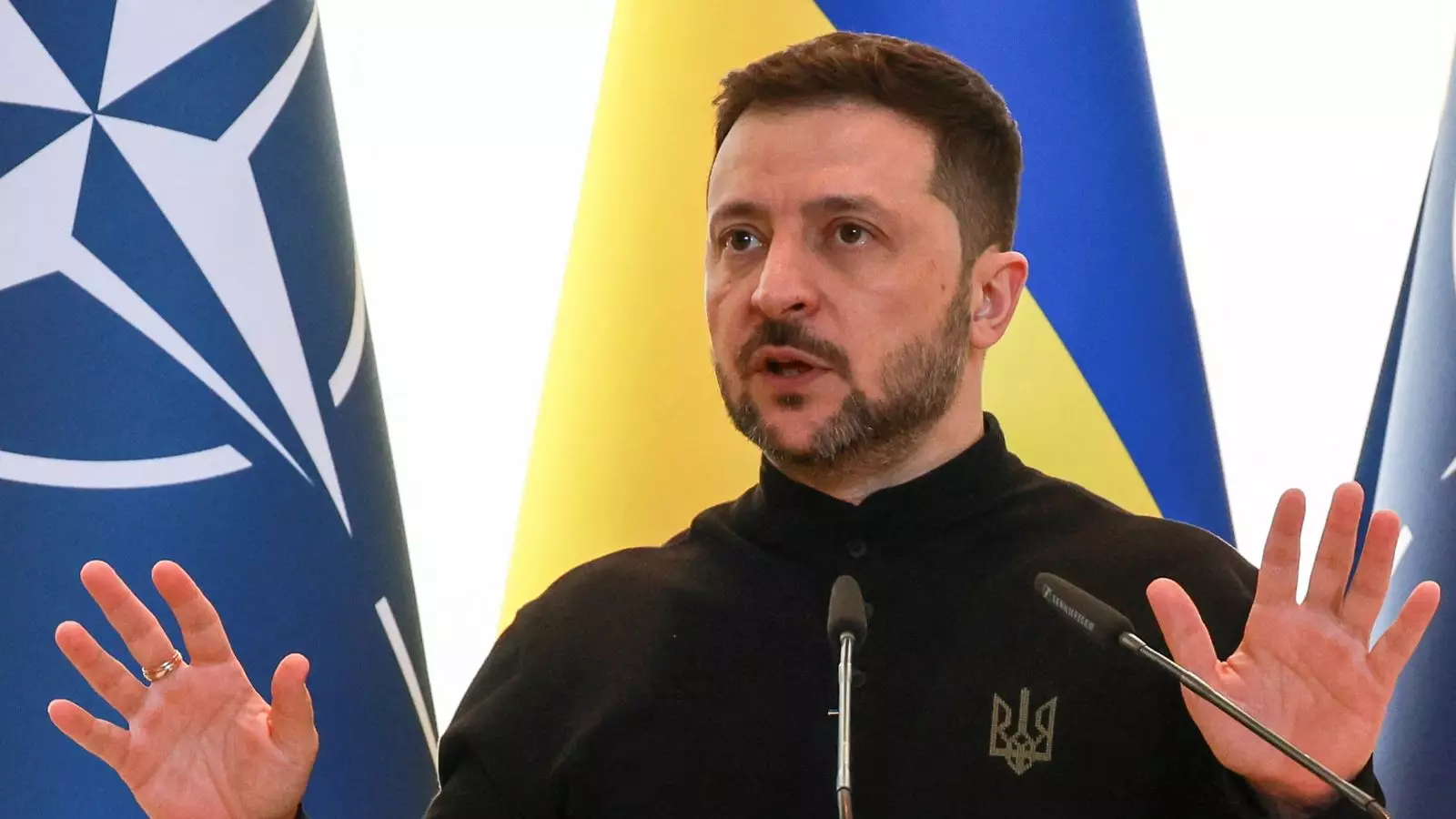On Easter Monday, in a world brimming with uncertainty, Sir Keir Starmer and Ukrainian President Volodymyr Zelenskyy engaged in a conversation that has become sadly characteristic of the ongoing discourse surrounding the Russo-Ukrainian conflict. While both leaders ostensibly emphasized the need for a resolution to “Russia’s brutal war,” one cannot ignore the persistent and deeply unsettling reality that the dialogue, while well-intentioned, risks transforming into mere performative politics. The reality is stark: words without action create a vacuum, wherein the suffering of the Ukrainian people continues unabated.
Starmer’s statements of “iron-clad support” for Ukraine echo the sentiments of countless leaders before him, yet they inevitably raise questions regarding the efficacy of his promises. When Ukrainian officials arrive in London for discussions, one must ponder whether this will lead to genuine progress or simply provide a stage for the international community to parrot its support while the atrocities continue. The Easter truce, touted as a moment of respite, was marred by accusations from both sides about violations. This back-and-forth only amplifies my concern over whether the parties involved are genuinely committed to dialogue or simply engaging in a diplomatic charade to placate a restless public.
The Russian Proposition: A Mask for Malice
As Vladimir Putin hints at a willingness to entertain bilateral talks, the question arises: is this open-mindedness genuine or merely a strategic ploy to retrench his position? When Putin asserts a “positive attitude towards a truce,” one cannot help but recall the haunting echoes of previous broken promises and ceasefires. The proposed dialogue seems more like a calculated move to perilously navigate the tides of international opinion rather than a real effort towards peace. It is as if he believes that the world might be so easily fooled by his charm, spinning words of hope into a tapestry of deceit.
Moreover, one cannot ignore the absurdity of Putin’s justifications for the Easter truce. His invocation of “bright Easter days” comes off as a crass manipulation of a significant cultural and religious moment, used as a cover for ongoing violence. The hypocrisy inherent in proclaiming a desire for peace while simultaneously personifying aggression is indicative of the broader malaise afflicting international diplomacy. It highlights the desperate need for an unambiguous commitment to abide by ceasefire agreements—a commitment that both sides appear to circumvent.
The Follies of International Involvement
Complicating matters further is the presence of external political figures like Donald Trump, whose belated advocacy for peace seems more self-serving than altruistic. Trump’s insistence that both nations “will start to do big business” after the resolution of the conflict exemplifies an alarming reduction of war into a transactional affair. This perspective trivializes the immense human cost and suffering experienced by countless individuals, turning a catastrophic war into mere fodder for political gain. The utter detachment underlying such statements starkly contrasts with the gravity of the situation on the ground—a discrepancy that should outrage anyone who values human dignity over political expediency.
As discussions surrounding potential ceasefires and pauses are raised, the lack of trust between Russia and Ukraine only complicates the feasibility of lasting peace. The crimes committed during intermittent truces call into question the sincerity of promises made by either side. Ukraine’s fears of Russian violations are supported by observable realities, evidenced by the reported offenses that outnumber 2,000 within a single observational day. The tenuous nature of these truces perpetuates a cycle that prioritizes political optics over genuine human safety and security.
Disillusionment Amidst the Ruins of Diplomacy
It is increasingly difficult to harbor optimism in the face of the present political climate. The negotiations appear to snowball into an ebb and flow of empty assurances and barren rhetoric—each day drumming out more haunting statistics of human suffering. If we are to believe that the international community is serious about halting this crisis, substantive actions must replace rhetorical flourishes. True leadership calls for bravery, not just eloquent words spoken on an Easter Monday, while lives hang in the balance.
In a world where power and privilege often dictate the outcomes of such debates, both sides need to remember the ultimate stakes at play. The true measure of commitment to peace will be determined not by press releases or social media posts but by the unwavering resolve to de-escalate a conflict that has ravaged lives and landscapes alike. Until leaders are willing to confront these stark truths, the path to peace remains irrevocably sullied, defined by a dreadful silence amidst the cacophony of war.


Leave a Reply